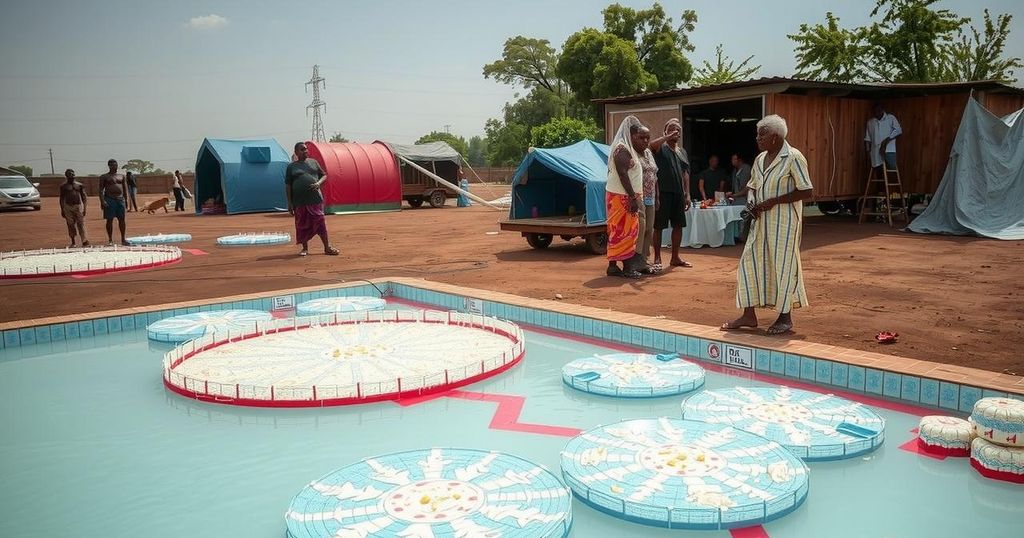Cholera Outbreak in South Sudan Leads to Nearly 60 Deaths and 6,000 Cases

A cholera outbreak in South Sudan has claimed nearly 60 lives since October 28, with approximately 6,000 cases reported. The outbreak predominantly affects IDP camps and is exacerbated by poor sanitation and overcrowding. Vaccination efforts are underway, though additional supplies are urgently needed. Vulnerable populations, including children and the elderly, are facing heightened risk amid this crisis.
A cholera outbreak in South Sudan has resulted in nearly 60 fatalities since it began on October 28, as reported by Michael Makuei Lueth, the Minister of Information and Communication. As of now, approximately 6,000 cases of cholera have been recorded, with government and UN agencies initiating vaccinations in response to this public health crisis. The outbreak primarily affects internally displaced persons (IDP) camps in the capital city of Juba and other regions, including Rubkona County, Aweil, and refugee camps in northern South Sudan, particularly in Renk.
The Minister emphasized that cholera is particularly pervasive among refugees fleeing from Sudan, contributing to the increasing number of cases. The Ministry of Health has requested additional vaccines, noting that the supplies received thus far are insufficient for the needs of the affected populations. Efforts are ongoing to extend vaccination programs to other areas, promoting the message of maintaining cleanliness at home and consuming warm food to minimize risk of cholera infection.
The outbreak profoundly impacts refugees, returnees, and local residents alike, with vulnerable groups such as children under five years and the elderly being the most affected. Factors such as overcrowding in transit centers and camps, along with limited access to clean water and inadequate sanitation and hygiene practices, exacerbate the crisis. The origin of the initial cholera cases can be traced to an outbreak in neighboring Sudan, which has already affected over 40,000 individuals.
South Sudan has been experiencing a severe cholera outbreak since late October, with significant challenges presented by the influx of refugees from Sudan due to ongoing conflict. The country’s healthcare infrastructure struggles to cope with the demands of the growing population in IDP camps. Cholera, a waterborne disease, thrives in areas where sanitation conditions are poor, and access to clean drinking water is limited, making the situation in South Sudan particularly dire. The UN and local health authorities are working together to implement vaccination programs and promote hygiene practices to contain the outbreak.
In conclusion, the cholera outbreak in South Sudan represents a critical public health challenge, particularly for the vulnerable populations residing in IDP and refugee camps. With nearly 60 fatalities and thousands of cases reported, immediate action through vaccination and improved sanitation practices is essential. The local government and international organizations must continue to collaborate to mitigate the effects of this outbreak and safeguard the health of affected communities.
Original Source: news.az







